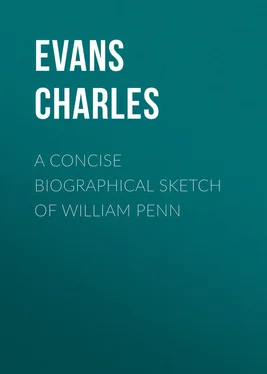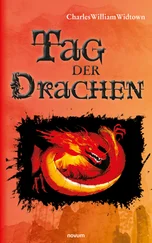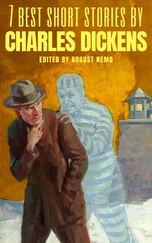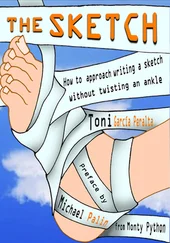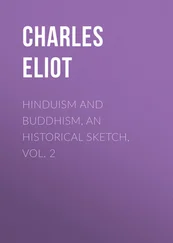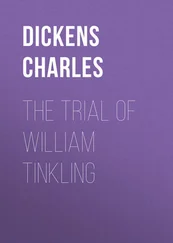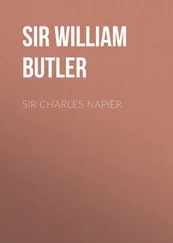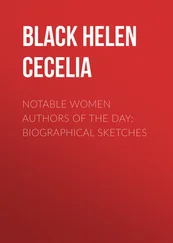Charles Evans - A Concise Biographical Sketch of William Penn
Здесь есть возможность читать онлайн «Charles Evans - A Concise Biographical Sketch of William Penn» — ознакомительный отрывок электронной книги совершенно бесплатно, а после прочтения отрывка купить полную версию. В некоторых случаях можно слушать аудио, скачать через торрент в формате fb2 и присутствует краткое содержание. Жанр: foreign_antique, foreign_prose, на английском языке. Описание произведения, (предисловие) а так же отзывы посетителей доступны на портале библиотеки ЛибКат.
- Название:A Concise Biographical Sketch of William Penn
- Автор:
- Жанр:
- Год:неизвестен
- ISBN:нет данных
- Рейтинг книги:5 / 5. Голосов: 1
-
Избранное:Добавить в избранное
- Отзывы:
-
Ваша оценка:
- 100
- 1
- 2
- 3
- 4
- 5
A Concise Biographical Sketch of William Penn: краткое содержание, описание и аннотация
Предлагаем к чтению аннотацию, описание, краткое содержание или предисловие (зависит от того, что написал сам автор книги «A Concise Biographical Sketch of William Penn»). Если вы не нашли необходимую информацию о книге — напишите в комментариях, мы постараемся отыскать её.
A Concise Biographical Sketch of William Penn — читать онлайн ознакомительный отрывок
Ниже представлен текст книги, разбитый по страницам. Система сохранения места последней прочитанной страницы, позволяет с удобством читать онлайн бесплатно книгу «A Concise Biographical Sketch of William Penn», без необходимости каждый раз заново искать на чём Вы остановились. Поставьте закладку, и сможете в любой момент перейти на страницу, на которой закончили чтение.
Интервал:
Закладка:
Observing, on the next day, that William did not uncover his head when he came into his presence, – in those days men generally wore their hats in the house, – and that he used thee and thou when addressing him, he demanded an explanation. William frankly told him that, having been convinced of the truth of the religion of the Quakers, he was conscientiously scrupulous against taking off his hat as a token of respect, using the plural language, or compliments. An angry altercation on the part of the father, and deeply distressing on the part of the son, succeeded, and was more than once repeated. Finally, the former, finding that neither argument nor threats could shake the latter's firm conviction that to comply with his father's wishes would be to violate his duty to his Lord and Master, told him he might thee and thou whom he pleased, and keep on his hat, except in the presence of the King, the Duke of York, and himself; but to or before these he should not thee or thou, or stand covered; and the son, moved by his father's distress and his own filial affection, asked time for consideration before giving a decisive reply. This was reluctantly granted, though he was forbidden to see any Friend, and William retired, to pour out his soul in prayer for right direction and strength to follow it. At their next interview William told his father that he could not comply with his wishes without violating his duty to his God, and must therefore decline. Irritated at what he considered his son's obstinacy, and foolish determination to sacrifice the worldly honors soliciting his acceptance, for a mere whim, the Admiral upbraided him in no measured terms, and when convinced that he would not be changed, turned him out of doors, with the threat that he would disinherit him. Before leaving his home and family, William assured his father how deeply he was grieved; not so much because of his being driven from his paternal roof and brought to poverty, as because he incurred his displeasure, and was thought by him to be an undutiful child. He then left the house, resigned to make the sacrifice required, and "choosing rather to suffer affliction with the people of God, than to enjoy the pleasures of sin for a season; esteeming the reproach of Christ greater riches than the treasures of Egypt; for he had respect unto the recompense of reward." Friends who knew the circumstances under which William Penn was placed, received him gladly; and his mother, who yearned over the son of her love, and greatly mourned the course pursued towards him, took means to have him supplied with money sufficient to obtain food and raiment, and so managed as to have an occasional interview with him. It was not long after, that, laying aside his rapier and all ornamentation of dress, he appeared in the plain garb of a Quaker.
Some years after, when writing respecting the trials that befell him about this time, he speaks of "the bitter mockings and scornings that fell upon me, the displeasure of my parents, the cruelty and invective of the priests, the strangeness of all my companions, and what a sign and wonder they made of me; but above all, that great cross of resisting and watching against my own vain affections and thoughts."
As he was given up to endure the baptisms necessary for his purification and refinement, his Divine Master brought him up out of the horrible pit, set his feet upon Himself, the Rock of Ages, and made him a partaker of the powers of the world to come; and having thus prepared him for the work, bestowed on him a gift in the ministry of the gospel of life and salvation. He first came forth in this service in 1668, about two years after his convincement under the ministry of Thomas Loe, and in the twenty-fourth year of his age. His uniformly consistent conduct, and careful maintenance of affectionate filial respect toward his exasperated parent, finally won upon him so far that he permitted him to take up his abode in his house; though it was long after he had been so living, before he would have much intercourse with him. But when, sharing in the persecution which Friends were then suffering, his son was cast into prison, it was said he secretly used his influence to obtain his liberty.
In 1668 Thomas Loe was called away from the church militant to enter upon his reward in the church triumphant. When on his death-bed, he said to William Penn, who, with other Friends, was waiting on him, "Bear thy cross and stand faithful to God; then He will give thee an everlasting crown of glory, that shall not be taken from thee. There is no other way which shall prosper than that which the holy men of old walked in. God hath brought immortality to light, and life immortal is felt. Glory! glory! to Him, for He is worthy of it. His love overcomes my heart; nay, my cup runs over; glory be to His Name forever." To George Whitehead he remarked, "The Lord is good to me; this day He hath covered me with glory," and as life was leaving his body, he sang, "Glory, glory to Thee forever!" and so sank to sleep in Jesus.
In 1668 William Penn was imprisoned on account of one of his publications, "The Sandy Foundation Shaken." It resulted from himself and George Whitehead having been unfairly prevented from orally replying to a Calvinistic preacher who had assailed the doctrines of Friends. In this tract he was not so guarded in the language he used, but that he was misunderstood by many, and supposed to be unsound on the fundamental doctrines of the proper divinity and meritorious death and atonement of Christ. The publication attracted general attention, and gave deep offence to some of the Prelates, who either thought it beneath their dignity to enter into argument with a polemic so young, and as they might think, so unskilled in divinity, or, being more in accordance with their practice and the spirit of the times, and more likely to silence their opponent, they applied to the Secretary of State, and induced him to issue a warrant for his arrest; which William Penn hearing of, went and voluntarily gave himself up, and was committed to the Tower. It was evident that William Penn had some bitter enemies, for a letter was picked up near where he had been standing when he surrendered himself, which contained matter of so treasonable a character, that Lord Arlington, the Secretary of State, on receiving and reading it, went immediately to the Tower and had an interview with him, in which he soon satisfied himself that William Penn knew nothing of the note, and was innocent of any conspiracy.
There had been no indictment, no trial, conviction, nor sentence passed upon the prisoner, and yet he was kept in solitary confinement for about eight months; during which time most of his family and friends were forbidden access to him, and the "Bishop of London" sent him word he should either make a public recantation or die in prison. But though thus closely immured as to his body, his spirit was free, and the word of the Lord was not bound. He prepared himself to weary out the malice of his enemies by patience and meekness, and to be resigned to lay down his life within the walls of the Tower, if the sacrifice was called for, rather than violate his conscience.
To occupy his time profitably, and, as far as he had ability, promote the cause of truth and righteousness, he employed his pen; and his thoughts, probably taking their direction and coloring from the afflictive circumstances under which he and many other members of the Society to which he was joined were then placed, he wrote the work, since become so celebrated, "No Cross, No Crown." This treatise is admitted to be of extraordinary merit; not only in a literary point of view, considering the short time and the circumstances under which it was produced, but in the clear and cogent manner in which it presents the sinful indulgences of the great body of the professors of Christianity, and enforces the self-denying requisitions of the religion of Christ.
Читать дальшеИнтервал:
Закладка:
Похожие книги на «A Concise Biographical Sketch of William Penn»
Представляем Вашему вниманию похожие книги на «A Concise Biographical Sketch of William Penn» списком для выбора. Мы отобрали схожую по названию и смыслу литературу в надежде предоставить читателям больше вариантов отыскать новые, интересные, ещё непрочитанные произведения.
Обсуждение, отзывы о книге «A Concise Biographical Sketch of William Penn» и просто собственные мнения читателей. Оставьте ваши комментарии, напишите, что Вы думаете о произведении, его смысле или главных героях. Укажите что конкретно понравилось, а что нет, и почему Вы так считаете.
